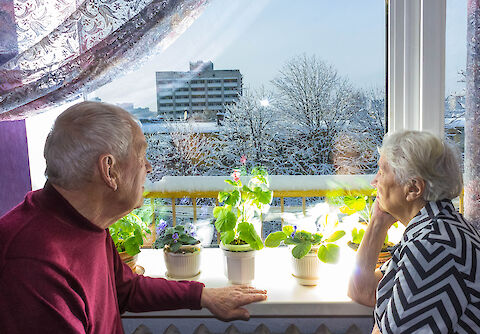
Living with a senior who has Alzheimer's Disease can be challenging, especially when it comes to managing the effects of sundowning. This phenomenon, characterized by increased confusion, agitation, and anxiety as the day progresses, can significantly impact the quality of life for both seniors and their families. Understanding and managing these triggers can help create a more comfortable and supportive living environment for your loved one while easing some of the stress associated with caregiving. Here are five top sundowning triggers and practical tips to incorporate into your daily routines.
1. Fatigue
One of the primary triggers of sundowning is fatigue. Ensuring your loved one maintains a regular sleep schedule is crucial in helping them feel well-rested and reducing the likelihood of agitation in the evening. Encourage afternoon naps if needed, but ensure they are not too long or too close to bedtime.
2. Hunger or Dehydration
Hunger or dehydration can also contribute to sundowning symptoms. Ensure your senior family member has regular meals and snacks throughout the day, focusing on balanced nutrition. Encourage them to drink fluids consistently to stay hydrated, especially during hotter months.
3. Shadows or Low Lighting
As the day transitions to evening, shadows and low lighting can create confusion and disorientation for seniors with Alzheimer's. To minimize this, ensure living areas are well-lit during the late afternoon and evening hours. Nightlights in hallways and bedrooms can also help reduce shadows and create a more comfortable environment.
4. Noise and Overstimulation
Loud noises and excessive stimulation can exacerbate sundowning symptoms. To minimize this, try to limit noisy activities or large gatherings during the evening hours. Creating a calm and quiet environment can go a long way in reducing agitation and confusion.
5. End-of-Day Activities
A consistent evening routine can help to reduce the anxiety associated with sundowning. Avoid activities that may cause confusion or agitation, such as mentally taxing tasks or discussing potentially upsetting topics. A predictable and calming routine can provide your loved one a sense of security and familiarity.
Tips for Managing Sundowning Triggers
- Establish a daily routine. Schedule activities, such as meals, exercise, and personal care tasks, around the same time each day. This consistency promotes better sleep at night and provides a sense of stability.
- Create a calm and soothing environment. Soft music or white noise machines can create a peaceful atmosphere, while calming scents from aromatherapy or essential oils may also help promote relaxation.
- Encourage physical activity. Engage in enjoyable and appropriate activities for your loved one's abilities. This can range from gentle walks to chair yoga or even gardening.
- Offer reassurance and support. During sundowning episodes, offer gentle reminders and explanations to help alleviate confusion. Providing comfort and reassurance can go a long way in easing your loved one's anxiety.
Need More Support With a Senior Experiencing Sundowning?
Understanding and managing sundowning triggers is vital for seniors with Alzheimer's Disease and their caregivers. By implementing the tips discussed in this post, you can help improve the quality of life for your loved one and yourself. If you need additional support or assistance in caring for someone with Alzheimer's in Knoxville, Maryville, Clinton, or Loudon, Senior Helpers Greater Knoxville provides excellent personal and companion care for seniors. Contact us to learn how we can support you in providing the best care for your loved one.